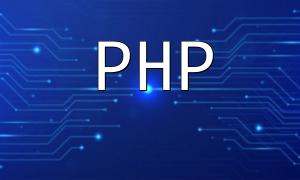As the internet continues to grow, the speed and performance of websites have become increasingly important. Users expect faster access and responsiveness from websites, raising the demands on developers to improve performance.
When developing websites with PHP, combining coding standards with performance optimization is an effective way to improve site speed and performance. This article will explain how to integrate PHP coding standards and performance optimization to boost website performance.
Naming conventions are a crucial part of PHP programming. Adhering to good naming conventions not only improves the readability of code but can also impact website performance. Below are common PHP naming conventions:
Following naming conventions improves code maintainability, reduces the likelihood of errors, and indirectly enhances system performance.
Code indentation plays an important role in making code more readable. It is recommended to use four spaces for indentation instead of tabs. This is because tabs may render inconsistently across different editors and environments, causing formatting issues.
Good code indentation enhances code readability and reduces errors caused by poor formatting.
Database performance directly affects the overall speed of a website. Optimizing database queries is one of the most important aspects of improving PHP performance. Common database optimization techniques include:
Through effective database optimization, website response times can be greatly improved, and the load on the database server can be minimized.
In addition to database optimization, code optimization is another key factor in improving website performance. Common PHP code optimization techniques include:
These optimization methods can minimize server resource consumption and improve website responsiveness.
PHP coding standards and performance optimization can not only be implemented separately but can also be combined to maximize website performance. Here are a few ways to combine both approaches:
By combining PHP coding standards with performance optimization, developers can improve code quality and significantly enhance website performance.
In PHP development, following coding standards and performing performance optimizations are essential for improving website speed and performance. Proper naming conventions and code indentation help maintain code quality, while database and code optimization are crucial for improving website responsiveness. By effectively combining these practices, developers can significantly optimize website performance and enhance user experience.
In summary, the integration of PHP coding standards and performance optimization is the key to improving website speed and performance.









